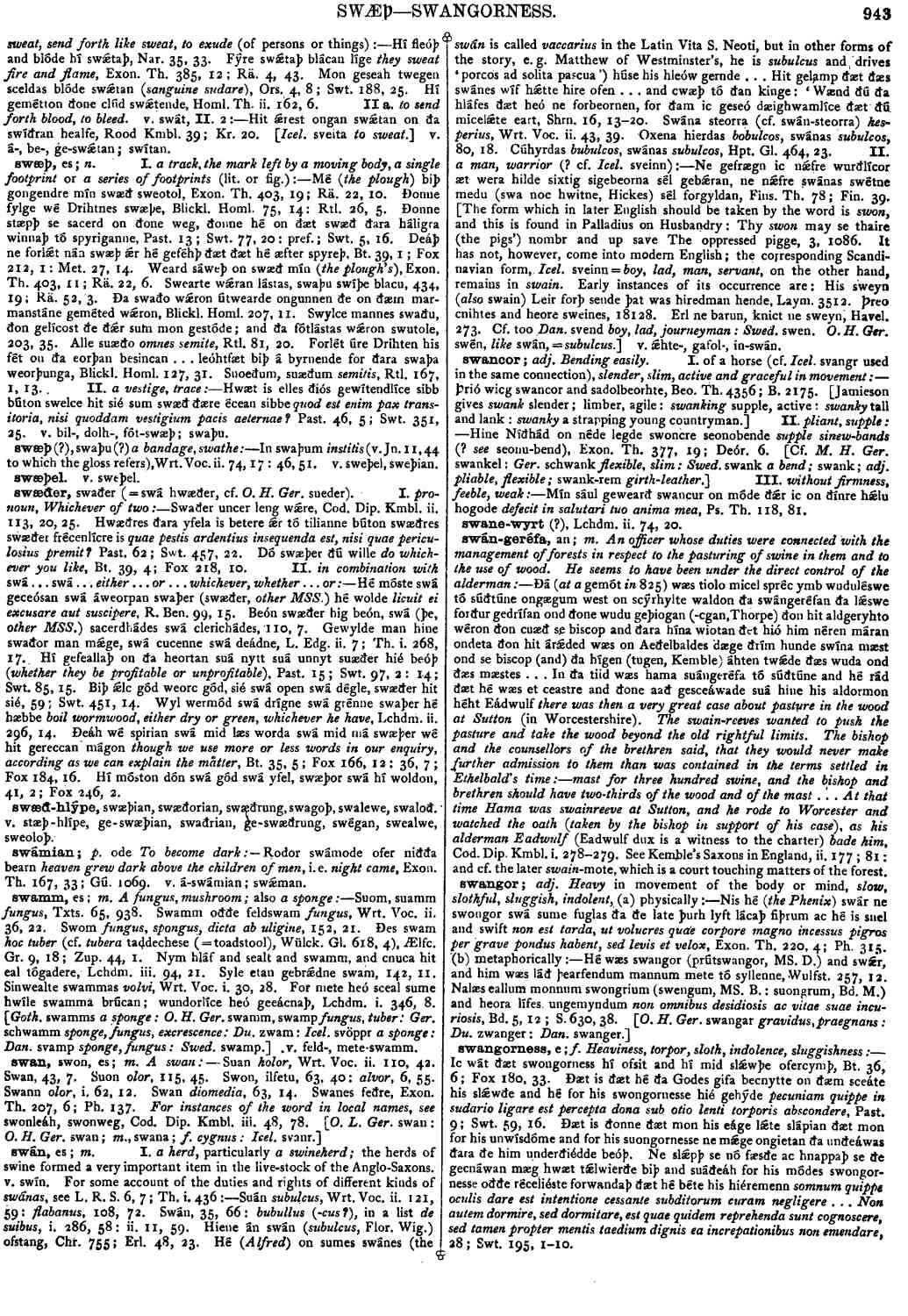swán-geréfa
- noun [ masculine ]
-
Ðá (at a gemót in 825) wæs tiolo micel spréc ymb wuduléswe tó súðtúne ongægum west on scýrhylte waldon ða swángeréfan ða lǽswe forður gedrífan ond ðone wudu geþiogan (-cgan, Thorpe) ðon hit aldgeryhto wéron ðon cuæð se biscop and ðara hína wiotan ðet hió him néren máran ondeta ðon hit árǽded wæs on Aeðelbaldes dæge ðrím hunde swína mæst ond se biscop (and) ða hígen (tugen, Kemble) áhten twæde ðæs wuda ond ðæs mæstes . . . In ða tiid wæs hama suángeréfa tó súðtúne and hé rád ðæt hé wæs et ceastre and ðone aað gesceáwade suá hine his aldormon héht Eádwulf there was then a very great case about pasture in the wood at Sutton (in Worcestershire). The swain-reeves wanted to push the pasture and take the wood beyond the old rightful limits. The bishop and the counsellors of the brethren said, that they would never make further admission to them than was contained in the terms settled in Ethelbald's time :--
mast for three hundred swine, and the bishop and brethren should have two-thirds of the wood and of the mast. . . At that time Hama was swainreeve at Sutton, and he rode to Worcester and watched the oath (taken by the bishop in support of his case), as his alderman Eadwulf (Eadwulf dux is a witness to the charter) bade him,
- Cod. Dip. Kmbl. i. 278-279.
- See Kemble's Saxons in England, ii. 177; 81: and cf. the later swain-mote, which is a court touching matters of the forest.
Bosworth, Joseph. “swán-geréfa.” In An Anglo-Saxon Dictionary Online, edited by Thomas Northcote Toller, Christ Sean, and Ondřej Tichy. Prague: Faculty of Arts, Charles University, 2014. https://bosworthtoller.com/29543.
Checked: 0